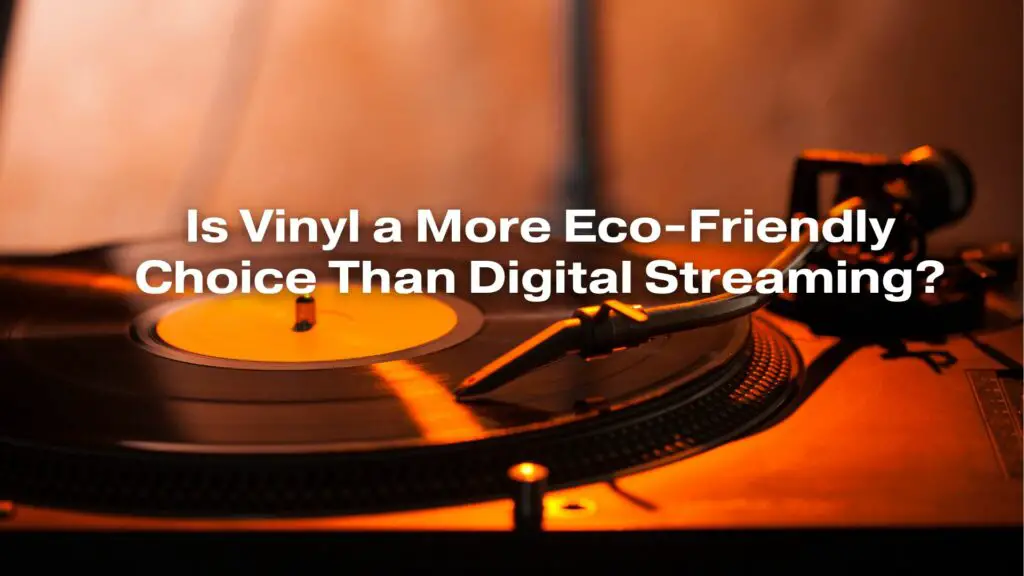The environmental impact of vinyl records versus digital streaming is a complex issue that depends on various factors, and it’s challenging to definitively say which option is more eco-friendly. Both formats have their environmental pros and cons. Let’s explore the environmental aspects of both vinyl records and digital streaming to provide a more balanced perspective:
Vinyl Records:
Pros:
- Durability: Vinyl records can last for decades when properly cared for. This longevity means that the production of new vinyl records is relatively low, reducing the need for constant manufacturing.
- Physical Product: Vinyl records are physical items, and their production and distribution contribute to the livelihood of various artisans and small businesses.
Cons:
- Manufacturing Impact: Vinyl records require the production of vinyl material, which is derived from fossil fuels. The manufacturing process can result in greenhouse gas emissions and other environmental impacts.
- Packaging: Vinyl records are often packaged in cardboard sleeves or plastic wrap, contributing to packaging waste. While this is a relatively minor concern compared to other issues, it still affects the environment.
Digital Streaming:
Pros:
- No Physical Product: Digital streaming eliminates the need for physical production, reducing the environmental impact of vinyl manufacturing, transportation, and packaging.
- Energy Efficiency: Streaming music uses less energy compared to manufacturing, transporting, and playing vinyl records. Digital streaming services optimize data centers for efficiency.
Cons:
- Data Centers: While the energy consumption of individual data centers is relatively low, the massive infrastructure required for streaming services can lead to high energy usage and environmental concerns.
- Electronic Waste: The rapid turnover of electronic devices (smartphones, computers, streaming devices) for streaming music can lead to electronic waste issues.
- Data Transfer and Storage: Streaming music generates data traffic, which can be energy-intensive, particularly if data centers rely on fossil fuels.
In summary, neither vinyl records nor digital streaming is definitively more eco-friendly. The environmental impact depends on various factors, including production, transportation, energy consumption, and waste management. Some vinyl enthusiasts argue that the durability and reusability of vinyl records make them an eco-friendly choice, while digital streaming advocates emphasize the reduction in physical production and transportation.
Ultimately, the most environmentally responsible choice depends on individual preferences, behaviors, and the specific context. Reducing one’s overall consumption of physical products, conserving energy, and making eco-conscious choices in all aspects of life can contribute to a more sustainable lifestyle, whether you prefer vinyl records or digital streaming.


